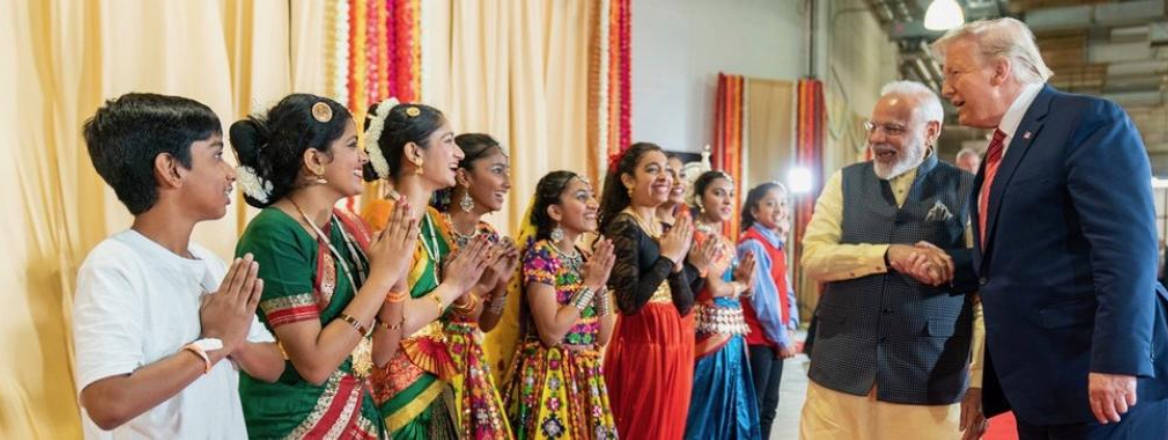The Biden Administration and the Future of US–India Ties
Mutual concerns around China’s assertiveness, as well as economic and diaspora ties, will sustain the positive trajectory of the US–India relationship.
While many in India used public discussion about the complex electoral process in the US to compare it with India’s own electoral system, the bipartisan nature of US–India ties meant that there was relatively limited concern over the result itself. Still, the election of Joe Biden as the next president of the United States may see a realignment of priorities that could have implications for India.
Ties That Transcend Party Politics
Prime Minister Narendra Modi and President Donald Trump have shared a strong personal relationship, epitomised by the large rallies they held together in Houston and Ahmedabad. However, a good personal rapport between Indian and US leaders has been the norm in this relationship for the last two decades, regardless of the parties in power in either country. Soon after the election results were first announced, Modi congratulated Biden and Vice President-elect Kamala Harris, emphasising the latter’s Indian-American ancestry, an early indication that pragmatism will dictate the future of the relationship.
Biden has long been an advocate of deeper ties with India, going back to his days as chairman of the Senate Foreign Relations Committee. He played a key role in lifting US sanctions on India in 2001 as well as in getting the US–India nuclear deal through the Senate in 2008, and when he was Vice President in the Obama administration, the US declared India a ‘Major Defense Partner’.
Recent developments such as the US–India 2+2 dialogue between the defence and foreign ministers of the two countries and the signing of the Basic Exchange and Cooperation Agreement (BECA) underline the momentum that the defence and security aspect of the relationship has gained. BECA is the last of four enabling defence agreements, signed across three different US administrations, that facilitate greater military cooperation and information sharing and emphasise the bipartisan nature of US–India defence cooperation.
In addition, as Washington has become increasingly concerned about China’s growing presence and assertiveness across Asia, the Free and Open Indo-Pacific strategy, launched under the Trump administration and developed in part as a way of recognising India’s growing role in the region, seems likely to persist in some capacity under Biden.
Not only were the seeds for a greater Indian role in the US’s Asia-Pacific thinking sown under the Obama administration but also Biden has stressed the importance of US partners in the region, and his post-election calls to allies referenced the Indo-Pacific on multiple occasions. While it remains to be seen how Biden might act, the continuity signalled by the Biden electoral campaign’s avowed intention to ‘work with India to support a rules-based and stable Indo-Pacific region in which no country, including China, is able to threaten its neighbours with impunity’ will be welcomed in India, which has wholeheartedly adopted this concept in its own foreign policy thinking.
Biden’s Potential Imprimatur
Biden has expressed a desire to cooperate with China on transnational issues like climate change, non-proliferation and global health security, suggesting he might adopt a less belligerent approach than Trump to the relationship with China. However, given the bipartisan consensus in Washington about the intensifying geopolitical and technological competition between China and the US, Delhi will be relatively confident that India will continue to be seen as a key security partner in Washington. Moreover, Biden has been vocal on issues like human rights abuses in Xinjiang and the clampdown on political freedoms in Hong Kong.
For India, there is a flip side to the potential return of human rights as an important plank of US foreign policy. Although Biden has in the past stated his admiration for India’s diversity and inclusiveness, his campaign website and other members of the Democratic Party have expressed concerns over the potentially adverse human rights impact of some of the Indian government’s recent policies, such as the Citizenship Amendment Act and the clampdown on political freedoms in Jammu and Kashmir since the revocation of its special status in August 2019.
This was already the cause of friction during Indian External Affairs Minister S Jaishankar’s visit to the US in December 2019. While the Trump administration was happy to overlook these issues, the Biden administration and Democrats on Capitol Hill are less likely to do so. Yet although this may create some concern in Delhi, which has become increasingly sensitive about international reactions to domestic political developments, it is unlikely that it will become a major obstacle in the relationship. Both sides will primarily assess the value of the partnership within the context of key factors such as the threat they each perceive from China, and the role of the other in helping to balance that threat, as well as the economic relationship.
Although the US–India defence and security relationship deepened significantly during the Trump administration, Trump’s zero-sum outlook on trade and immigration brought underlying tensions to the fore. While the economic relationship between the two countries continued to grow, Trump frequently criticised high tariffs on American products entering India and his administration removed India from the Generalised System of Preference programme, which allows duty-free imports of specific products from eligible developing countries and of which India was the largest beneficiary. Differences on trade between India and the US are longstanding, and it is unclear whether Biden will reverse the steps taken by Trump or move to strike a pending trade deal in light of prevailing domestic priorities. Indeed, he has stated that he will prioritise investments in the US before entering any into new trade agreements.
However, Biden is unlikely to publicly speak out against Indian economic practices or be as bothered as Trump was by India’s trade surplus, which may ease some of the tension. The Trump administration also suspended certain types of work visas until the end of 2020 and has indicated that it will restructure how work visas are awarded, both moves affecting a number of Indian citizens. Indians are therefore likely to welcome the Biden campaign’s suggestion of expanding the number of work visas offered by the US.
Overall, therefore, a Biden administration will be a less abrasive and more traditional partner for India and is likely to seek continuity in deepening ties with India, particularly as it seeks to work with partners around the world to tackle global challenges and compete with China.
The views expressed in this Commentary are the author's, and do not represent those of RUSI or any other institution.
WRITTEN BY
Aaditya Dave
Former Research Analyst, South Asia


